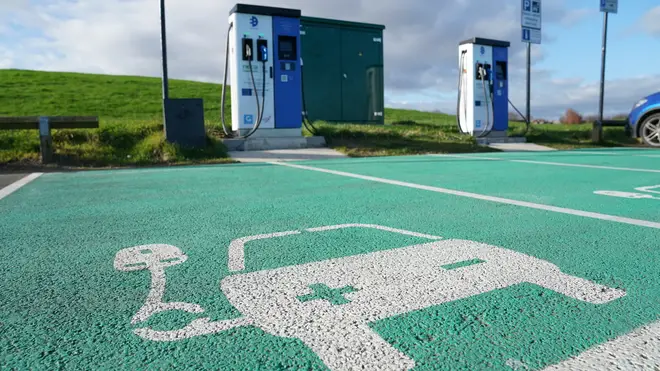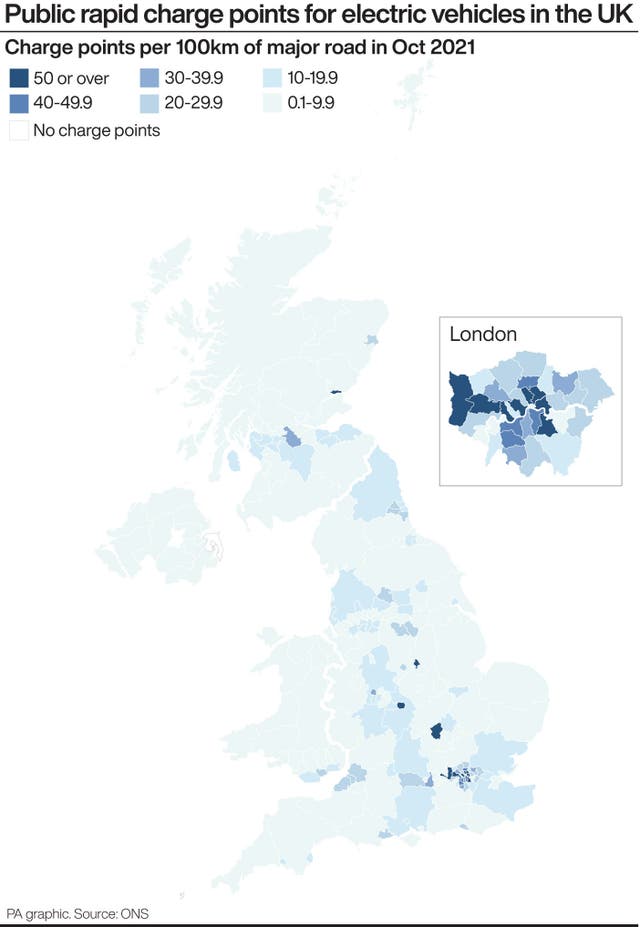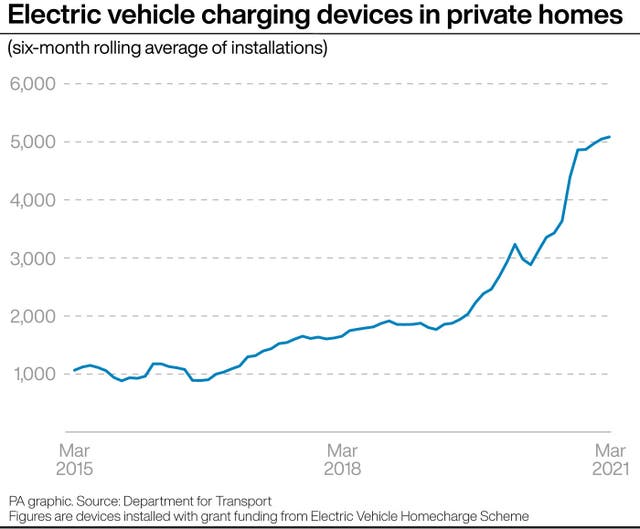
Shelagh Fogarty 1pm - 4pm
25 November 2021, 13:34

Boris Johnson has announced plans to increase the number of EV charging points around the UK.
The Prime Minister has announced plans that will require new homes in England to have an electric car charging point, as part of Government efforts to help the UK reach net zero.
Boris Johnson has said the plans will also require supermarkets and workplaces to install charging points, with any other buildings undergoing large-scale renovations told to install the points too.
Here is everything you need to know about electric vehicle charging points around the UK.
– What are they?
Electric vehicle or EV charging points are a place where electric car users can plug in and recharge the battery which powers their vehicle.

The charging points are connected to the power grid and users can connect to them using a special power cable on the charging point or one that comes with their electric vehicle.
There are a growing number of public charging spots, often found in car parks with their own marked parking spaces, but the majority of EV users choose to charge at home via a domestic plug socket or a dedicated EV home charger connected directly to the mains.
– How many public charging points are there currently in the UK and where are they?
According to the Office for National Statistics (ONS), at the beginning of October there were just under 27,000 public charging points across the UK, with the latest data showing just over 460,000 plug-in electric cars on the roads.
Data from Zap-Map, which shows where public charging points are across the country, said that on average, there are nine rapid charge points for every 100km of major road across the UK.
However, ONS figures show that the south of the country – and in particular London – dominates the provision of charging points, with five of the 10 areas with the most points being London boroughs.
Several areas including Ards and North Down in Northern Ireland had no rapid charge points listed, as did both north and west Northamptonshire and the Isles of Scilly, while only one point was listed in Armagh City, Banbridge and Craigavon, and Causeway Coast and Glens – both in Northern Ireland.
– So how many charging points do there need to be?
The figures suggest there is still some way to go.

As electric car sales continue to rise and the UK phases out petrol and diesel vehicles, the Climate Change Committee estimates that 325,000 public charging points will be needed across the UK by 2032 to support a fleet of 23.2 million electric cars, which would be around 55% of all vehicles on the road – an increase in EVs needed to help the UK towards its net zero targets.
– How expensive are electric cars to buy and run?
The upfront costs of an electric car remain high, with new vehicles generally priced significantly higher than petrol and diesel alternatives, but the gap is gradually narrowing.
The day-to-day running costs over the lifetime of the vehicle are substantially better with an electric car.
Data from the Department for Business, Energy and Industrial Strategy found that in 2020 the cost of fuelling 100 miles in a top-selling electric car was less than half of the cost to fuel the same distance in a similar petrol car when comparing the average price of standard electricity to unleaded petrol.
Those 2020 figures estimated that it would cost around £4 to charge an electric car to travel 100 miles, compared with around £10 to fuel a petrol car for the same distance.
– And who are the big names in the electric car market?
US firm Tesla, which launched its first electric car in 2008, is the biggest name in the electric vehicle market and has the largest market share according to Statista figures for the first half of 2021.
But a number of the traditional, big-name car manufacturers are also now among those with the largest market share, including the VW Group, which is home to brands such as Volkswagen and Audi, US giant General Motors and the BMW Group.